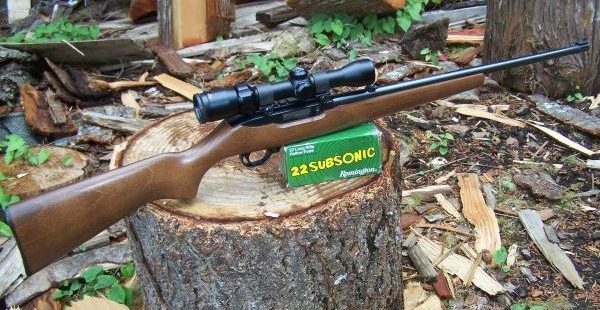
Buried in Section 3 of the proposed Initiative 1639—a 30-page billionaire-backed gun control measure now on the ballot in Washington State—is a requirement that purchasers of so-called “semiautomatic assault rifles” provide proof that they have “completed a recognized firearm safety training program.”
The requirement is found on Page 4, subsection (2)(a) and it reads:
“(a) The purchaser provides proof that he or she has completed a recognized firearm safety training program within the last five years that, at a minimum, includes instruction on: (i) Basic firearms safety rules; (ii) Firearms and children, including secure gun storage and talking to children about gun safety; (iii) Firearms and suicide prevention; (iv) Secure gun storage to prevent unauthorized access and use…”
Does this equate to a “literacy test” requirement?
In 1965, Congress acted to outlaw “literacy tests,” which—as explained in a Wikipedia historical treatise—were used to disenfranchise minorities from exercising their voting rights.
Under the provisions of I-1639, this proof of completion of a gun safety course is used ostensibly to prevent accidents, but is it actually being used to prevent someone from exercising the right to bear arms as guaranteed by both the state and federal constitutions?
As spelled out by I-1639, “The training must be sponsored by a federal, state, county, or municipal law enforcement agency, a college or university, a nationally recognized organization that customarily offers firearms training, or a firearms training school with instructors certified by a nationally recognized organization that customarily offers firearms training.”
Who is going to pay for this training? If it is the gun buyer, does that amount to an unconstitutional “poll tax?’
Remember, opponents of the initiative explain, I-1639 attempts to place massive restrictions on the exercise of a constitutionally delineated fundamental individual right that has been upheld twice in the past ten years by the U.S. Supreme Court.
Even the Seattle Times editorial from Oct. 2 acknowledged, “Initiative 1639 would smartly make it more difficult for everyone to buy a semi-automatic assault rifle by increasing background-check requirements and adding a 10-day waiting period. These are similar to Washington requirements to buy a handgun. This proposal makes sense.” That depends upon one’s perspective, and critics of the initiative contend that its many provisions make no sense at all.
There is another part of Section 3 that has raised eyebrows within the firearms community. That’s in Subsection (6)(b)(ii), where the measure says “The purchaser shall be given a copy of the department of fish and wildlife pamphlet on the legal limits of the use of firearms((,)) and firearms safety ((, and the fact that local laws and ordinances on firearms are preempted by state law and must be consistent with state law)).”
That last sentence, italicized for emphasis, the one requiring that gun buyers be notified about Washington’s preemption law, actually would be repealed by I-1639.
Why would the sponsors of this initiative want to conceal from citizens the fact that the state retains sole authority for the regulation of firearms? That is, local cities, towns and counties are prohibited from passing their own gun control laws, a fact that is now being ignored by Seattle and Edmonds, and King County. The two cities are being sued by the Second Amendment Foundation and National Rifle Association, and Liberty Park Press has been advised that a similar legal action will be filed against the county.
Thursday, the Vancouver Columbian recommended a “NO” vote on the initiative, and it is obvious the editorial board was reluctant to reach that conclusion because it contends more gun restrictions are needed. But they recognize the measure has serious problems.
The Seattle Times today has corrected an error in its endorsement of the measure that Liberty Park Press pointed out earlier this week. Initially, the Times editorial stated that “Hunting rifles will not be subject to these new rules.” That is simply not true, so in its tepid correction, the Times acknowledges, “A previous version of this story incorrectly stated that hunting rifles would not be subject to these new rules. Hunting rifles that are not semiautomatics would not be subject to the new requirements of the initiative.”
Translation: All semiautomatic rifles, whether they are used for hunting, predator control, recreational shooting or competition, are subject to the requirements of I-1639.
Provisions of I-1639 have awakened and energized Washington gun owners. If they maintain current momentum as ballots arrive in the mail, the measure could be in trouble, no matter how many millions of dollars proponents spend to garner support.
RELATED:
Seattle Gun Control Edit Sparks Blistering Reactions from Activists
WA Law Enforcement Groups Oppose I-1639—NRA